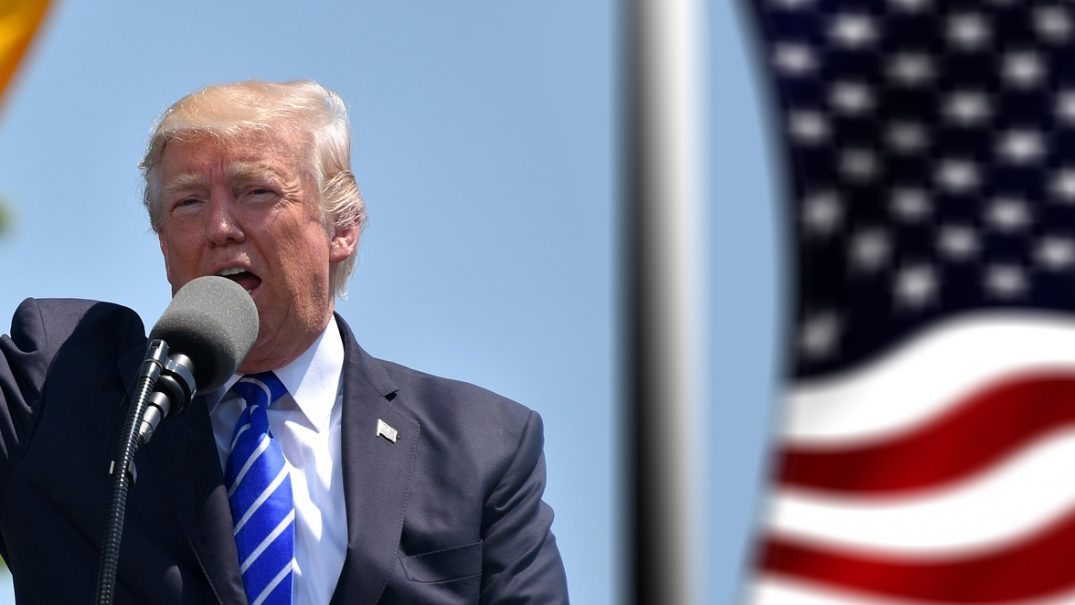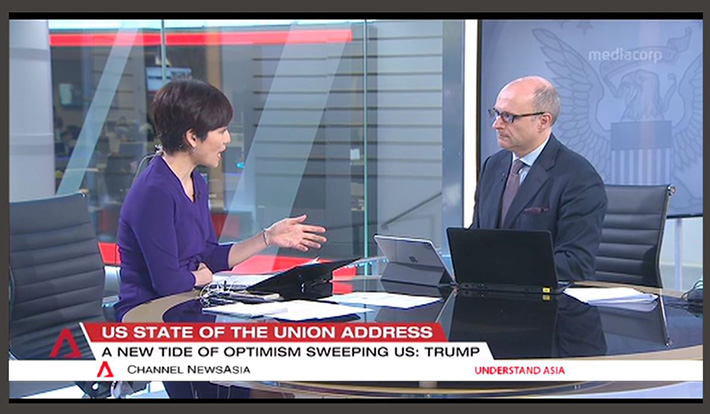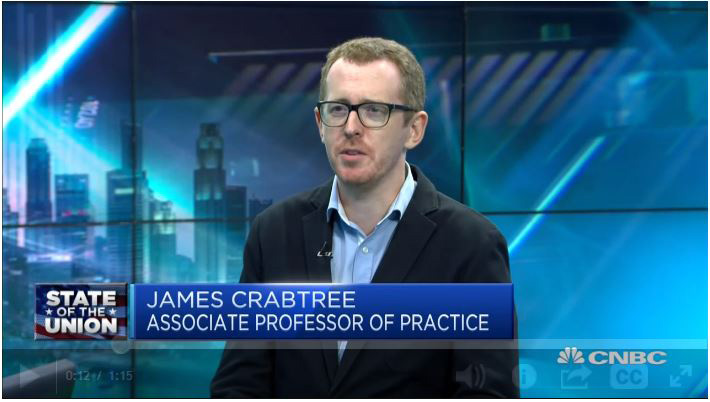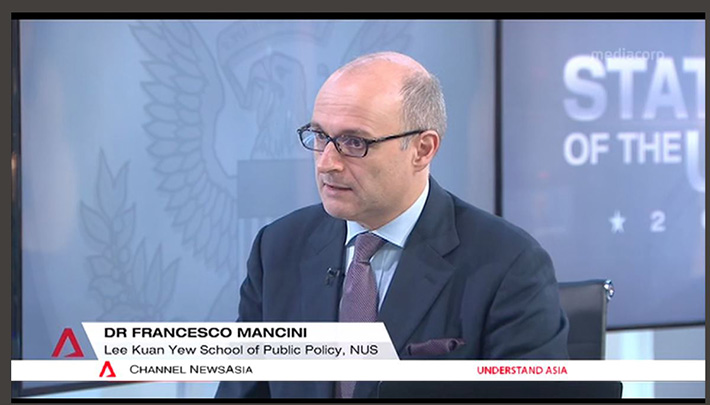President Trump’s first State of the Union speech touched on China and North Korea. How should the rest of Asia react?

In his first State of the Union speech, U.S. President Donald Trump singled out China as a rival and promised to exert "maximum pressure" on North Korea but stopped short of talking about military options against the regime in Pyongyang.
The U.S. leader signalled a more black and white approach generally in international relations.
"As we strengthen friendships around the world, we are also restoring clarity about our adversaries, he said.
China responded by calling on the United States to cast away its Cold War mentality.
Chinese Foreign Ministry spokesperson Hua Chunying told Xinhua news agency at a routine briefing that the concept of China-U.S. relations as a zero-sum game was outdated.
"We hope the United States will meet China halfway, respect each other, focus on cooperation, and control differences, to maintain a healthy and stable growth in bilateral ties," Hua said.

Lee Kuan Yew School of Public Policy Associate Dean and Visiting Associate Professor Francesco Mancini told Channel News Asia that global leaders remain confused about the U.S. Administration's policy direction despite the speech.
Do you follow the Trump on Twitter, or do you follow the Trump in Davos, or do you follow the Trump on the state of the union? Professor Mancini said.
"For global leaders it is very hard to understand what the directions are."
Mr Trump's rhetoric on North Korea focused on the stories of North Korean defector Ji Seong-ho and American student Otto Warmbier who died after being held captive by the state.
Centre for Strategic & International Studies Senior Vice President for Asia, Michael J. Green, said that perhaps this State of the Union marked a turn towards a more deliberate strategy of containing and deterring North Korea.
Mr Trump singled out those nations who voted against the U.S. decision to move its embassy in Israel to Jerusalem at the UN, many of which are Asian, and pointed to a policy of redirecting foreign assistance away from countries that didn't serve American interests.

Lee Kuan Yew School of Public Policy Associate Professor of Practice, James Crabtree, told CNBC that he was surprised by how much red meat there was in the speech for Mr Trump's support base given that it was touted as a conciliatory shift by the White House.
The State of the Union speech - the annual policy outline delivered to the U.S. Congress by each President from the second year of their first term - did begin with a call for unity, referencing a new American moment brought about by recent successful economic milestones.
But underlying Mr. Trump's speech was a focus on national security, rebuilding America's nuclear arsenal, military spending, continuing the war on terror, tougher trade negotiations and stricter immigration policies, including dumping the U.S. green card lottery which was a symbol of hope for many aspiring migrants in developing Asian countries.
Mr Trump announced that Guantanamo Bay would stay open and that the U.S. would review their military detention policy with a view to continuing to have all necessary power to detain terrorists.
On defence,Mr Trump called on the Congress to modernise and rebuild America's nuclear arsenal.
Perhaps someday in the future, there will be a magical moment when the countries of the world will get together to eliminate their nuclear weapons. Unfortunately, we are not there yet, sadly. Mr Trump said.

Professor Mancini said Mr. Trump's comments indicated he was advocating more nuclear proliferation. While commenting that This is quite a statement for a world leader in 2018, during his interview with Channel News Asia after the U.S. President's address, Professor Mancini also feels that advocating for more nuclear weapons is only going to create more incentives for countries like North Korea and Iran to pursue nuclear strategies, rather than seeking for compromises,.
Mr. Trumpcontinued to talk about driving harder bargains on trade, in what was perhaps the only other reference to Asian competition.
This follows his recent decision to increase tariffs on imported washing machines and musings about rejoining the Trans-Pacific Partnership trade deal.
We will work to fix bad trade deals and negotiate new ones. And they'll be good ones. But they'll be fair. And we will protect American workers and American intellectual property, through strong enforcement of our trade rules. He said.